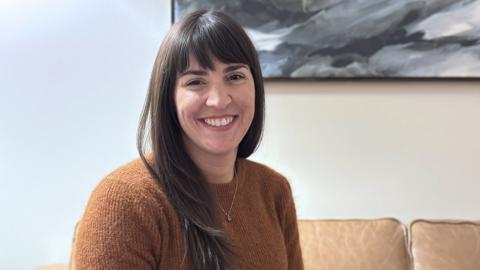Christian Counselor Appeals to Supreme Court Against Colorado’s Ban on Faith-Based Guidance for Youth

In a critical legal clash, Colorado counselor Kaley Chiles is taking her case to the U.S. Supreme Court after her state enacted a law that forbids counselors from guiding young clients to embrace their biological gender, instead promoting conversations that may support gender transition. Represented by the Alliance Defending Freedom (ADF), Chiles contends that Colorado’s Minor Conversion Therapy Law suppresses her freedom of speech, forcing counselors to adopt a state-mandated stance that she believes conflicts with her faith and her clients’ desires.

Chiles, a licensed counselor who has devoted her career to helping young people navigate complex questions of faith, identity, and purpose, now finds herself unable to speak openly on these subjects with minors. As a Christian, she feels her guidance is rooted in helping clients honor “God’s design,” aligning personal struggles with values central to her faith. Many families seek Chiles’ services specifically for her faith-based approach, hoping to find counsel that resonates with their religious beliefs.
In a statement, ADF Legal Counsel Cody Barnett warned, “The government has no business censoring private conversations between clients and counselors, nor should a counselor be used as a tool to impose the government’s biased views on her clients.” ADF’s petition urges the Supreme Court to recognize this “counseling censorship” as a First Amendment violation, pointing to a split in lower court decisions on similar issues.
Under Colorado’s law, licensed counselors can face fines of up to $5,000 per instance if they engage in any conversation that could be interpreted as discouraging gender transition or same-sex attractions for minors. If Chiles were to express support for a young client questioning a new identity, she risks her license and career. Her initial appeal for an injunction was denied, with the U.S. Court of Appeals for the 10th Circuit upholding the law, ruling that speech within therapy could be classified as “conduct” rather than protected free speech. This interpretation leaves Chiles and many others in her field caught between their deeply held convictions and the law.
The lawsuit underscores an unsettling disparity in the law’s application: while counselors are barred from supporting minors in aligning with their biological gender, they are free to encourage or explore a client’s interest in gender transition or same-sex attraction. ADF argues this one-sided mandate is a dangerous precedent. “Amidst an unprecedented mental-health crisis among this country’s young people,” ADF’s statement reads, “the decision prevents vulnerable individuals in many states from obtaining the counseling they desire and desperately need.”
Colorado’s law is part of a broader trend across multiple states implementing similar restrictions on what is sometimes called “conversion therapy.” Supporters of these laws argue that such measures protect LGBTQ+ youth from harmful practices that might encourage them to suppress or deny their identity. Opponents, however, like Chiles, argue that the legislation targets and criminalizes speech, reducing therapy to a state-endorsed narrative that strips clients of choice.
This case represents more than a single legal dispute; it taps into a profound societal debate over the limits of free speech, the right to religious expression, and how America defines personal and parental autonomy in matters of faith and identity. Chiles’ case challenges whether the government has the power to dictate the nature of private conversations, ultimately asking if the Constitution still safeguards individual rights within the therapist’s office.
The Supreme Court’s potential involvement could define the boundaries of therapeutic guidance for years to come, determining if conversations shaped by faith have a place in counseling or if such conversations fall under government jurisdiction. For Chiles, the decision to fight is a stand not just for her beliefs but for the future of faith-centered therapy in America.




